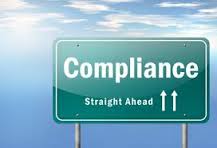Five Ways to Ensure Board Support for Compliance
 A Chief Compliance Officer has a number of important relationships to maintain in an organization. Aside from the support of senior level executives, the CCO has to build an effective working relationship with the board and the relevant board committee responsible for ethics and compliance.
A Chief Compliance Officer has a number of important relationships to maintain in an organization. Aside from the support of senior level executives, the CCO has to build an effective working relationship with the board and the relevant board committee responsible for ethics and compliance.
From an operational standpoint, a CCO has to use the board to advance an issue when frustrated by senior management. A CCO’s direct contact with the board gives the CCO an important tool that should be used in rare situations to ensure that senior management properly attends to the ethics and compliance function.
To accomplish this important bond, a CCO has to undertake five important steps:
Create a Personal Relationship: A CCO has to devote time and attention to establishing personal relationships with the chair of the committee (assuming it is an audit committee) responsible for oversight of the company’s ethics and compliance program. I hate to sound like a “relationship advisor,” but a CCO has to schedule regular meetings, telephone calls, and/or meals with the chair of the audit committee to discuss issues. The CCO has to take the initiative to contact the chair and establish a regular informal communications avenue.
Request Sufficient Time to Report to the Board Committee and an Executive Session: A CCO needs, at a minimum, 30 minutes and preferably 45 to 60 minutes, at every board committee meeting to present a report of the status of ethics and compliance issues. The meeting has to be face-to-face and should be based on a written report to accompany the oral presentation. An executive session should be included at the conclusion of the presentation so that everyone has an opportunity to discuss issues. A CCO should not use such a session to complain or gossip – instead, this is a valuable opportunity to have a frank discussion about progress and roadblocks to a company’s ethics and compliance program.
Report on Real and Tangible Ethics and Compliance Issues: A CCO who presents fancy bar graphs and pie charts to establish how many people have been trained, the number of complaints, how many certifications have been collected, and the number of internal investigations is wasting the opportunity to gain the audit committee’s support, buy-in, and initiative. A CCO’s compliance report should be tailored to three important issues: (1) the company’s culture and how effective it is being embraced; (2) the company’s risk profile and how those risks are being mitigated and managed; and (3) identification of significant threats to the company from an ongoing internal or government investigation.
 Educate the Board on Ethics and Compliance Issues: A CCO’s report is an important opportunity to “educate” the board in ethics and compliance issues. Board members are always interested in new ideas, and ethics and compliance issues should be presented in a way to promote discussion of new approaches and best practices. As part of this effort, it is important to bring up benchmarking, best practices, and developments in the ethics and compliance field.
Educate the Board on Ethics and Compliance Issues: A CCO’s report is an important opportunity to “educate” the board in ethics and compliance issues. Board members are always interested in new ideas, and ethics and compliance issues should be presented in a way to promote discussion of new approaches and best practices. As part of this effort, it is important to bring up benchmarking, best practices, and developments in the ethics and compliance field.
Seek the Board’s Input on Ethics and Compliance Issues: A CCO should not be a talking head at a board meeting. It is important for the CCO to engage the board, enlist the participation of board members in a discussion, and seek their guidance and input on important compliance issues. In this respect, a CCO should study and know each board member’s background, business experience and knowledge with respect to compliance issues. It is important to understand the strengths of each board member, and to encourage their participation on key issues. A board member will often have prior experiences relating to ethics and compliance issues and their perspective and contribution should be reinforced during any discussion. A CCO has to exercise great care in seeking such input, tailoring it to the ethics and compliance objectives and building a key alliance with the board on important issues.















